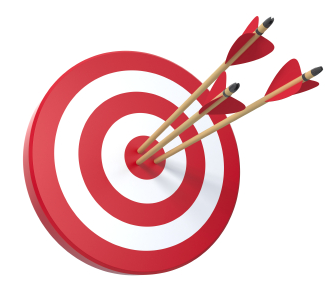Reflection is an essential part of my day because it provides a diagnostic for what parts of me need work. Below are five I’ve found so far.
Grit
I’ve been building grit for the past three months by going to the gym immediately after work. I meet my friend Brian there to workout because he’s jacked (can bench 350) and I know I will push myself to the limit when I’m with him. While I haven’t reached anywhere close to that weight, I’ve gained 18 pounds in the last two months. I want to focus on building grit because it’s imperative to doing hard things. In all of the interviews I’ve listened to with successful businessmen and millionaires, they always endure years of failure or struggle before making it. Grit is the determination you form after failing time after time and pushing yourself to be better.
Analytics/Problem Solving
As a financial analyst, it’s my job to look over large amounts of data and find problems. Often this means analyzing year-end financial reports for the entire company. I plan to write these reports so often that I can effortlessly break them down month-by-month and explain it so well that even someone with no business experience could understand it.
I also think critically through supply chain processes to find money sinkholes. I’ve discovered that talking through problems step by step with others and detailing all of the issues I hadn’t considered is a huge help to me. When I face a challenge, I’ve found that “brain dumping” all my ideas onto paper, even the craziest solutions, often result in inspiring ideas.
The best problem-solvers use their own intelligence, of those with more experience, and of those directly involved with the problem. I’ve learned much about analytical work in the last three months, but it’s nothing compared to what I will learn in the next three.
Financial Shrewdness
It shocks me that personal finance classes aren’t taught in high school before many make a $100,000 decision that will likely bury them in debt until their 30s. You’re not mature enough to drink alcohol or smoke cigarettes, but are encouraged to sign away your life on a dotted line. Many people after college and even into their 30’s don’t know how to use credit cards responsibly, the basics of investing or even to calculate your net worth.
I’ve committed myself to become an expert in finance and investing. I listen to finance podcasts for about eight to ten hours a day Monday-Friday, including Dave Ramsey, Listen Money Matters, The Investor’s Podcast, and Stacking Benjamins. I learn everything from tools to track my spending to ways to cut down my employer’s costs.
I plan to solidify my knowledge by covering the basics of investing and budgeting in future blog posts to show that no matter how much money you’re making, it’s possible to save for the future and not make costly money mistakes.
Well-read
The only way to truly see someone’s perspective is to read their writing. Reading is critical for blogging, continually learning, and improving your perspective. Warren Buffet used to read up to six hours a day and made a rule that if you’re not dedicating at least five hours a week reading and learning new things, you’re not caring enough for yourself.
No matter what you’re learning, you should tackle new ideas. For me, reading is an escape and a way to recharge from work. I plan to read 35 books in 2019, so I have to stick to a daily reading regiment. I’ve found that reading about other disciplines often gives you applicable ideas to improve on your own. Reading “The Seventh Sense” by Joshua Ramo has influenced my thinking on how my company finds and sells to stores.
Constant reading of talented authors improves my writing. I’ve found myself critiquing myself when writing rambling sentences that I would struggle through if reading them myself, or writing vague sentences. I plan to continue on my journey to 35, incorporating what I learned into my blog and daily work.
If you have any “must read” books that changed your life, I’d love suggestions.
Creative
Many people think financial analysts and creative people are two separate entities. But I believe the best analysts think outside the box in solving problems, much like the best marketers. I chase ingenuity in both. How do you best design processes to minimize costs? Is it by giving incentives or threatening fines? What steps can you take to build a brand that you care for your customers and employees while still turning a profit? Can you trust employees enough to work from home? How can I reduce the turnover cost of new employees, so we invest in them so much that they don’t want to leave? How can I find the balance between keeping customers informed and not bugging them so much they unsubscribe?
The best solutions are tailor-made for every situation, not just tradition. I look forward to creating win-win solutions for everyone involved.
These are five targets I plan to pulverize in the upcoming year.
